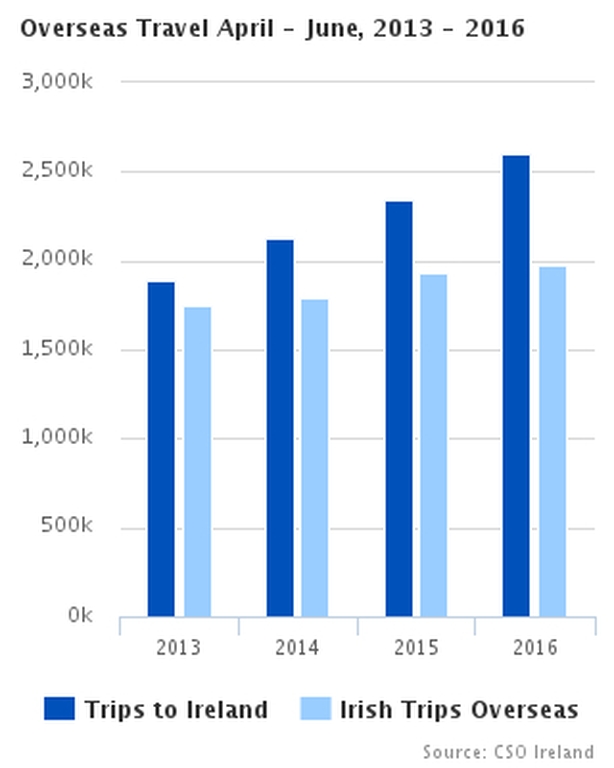Overseas travel to Ireland during the first half of the year was 13.1% higher than the same period last year, according to latest Central Statistics Office data.
Between April and June, trips to Ireland increased by 10.8% to more than 2.5m trips.
According to the CSO, over 250,000 more people visited the country during the period compared to the same time a year ago.
During the last quarter, trips by residents of Great Britain increased by 14.4% to 1,013,600, while trips by residents of other European countries were 9.1% higher at 928,500.
The number of visitors from North America during the second quarter rose by 11.1% to 520,100, but the number of visitor numbers from other areas to Ireland dropped below 2m (-2.5%) between April and June.

Meanwhile, the total number of trips (Irish residents’ trips overseas plus trips to Ireland) during the second quarter rose by 7.1% to 4,574,200 when compared with the same period a year ago.
Irish residents' trips overseas for the first six months was 6.8% higher than the same period last year.
Commenting on the figures, Minister for Tourism Shane Ross said: 'We now have official figures for overseas visits to Ireland for the first half of 2016 which show that Irish tourism is having another excellent year.
He added: “This is good news for everybody involved in Irish tourism and reflects the hard work carried out by all those involved in the tourism industry.”
Tourism Ireland CEO Niall Gibbons welcomed the increased visitor numbers, however, he cautioned that “the outcome of the recent EU referendum in the UK has given rise to economic uncertainty and currency movements, which have the capacity to hamper growth.
“Although it is still too soon to fully understand the long-term implications of Brexit for tourism to the island of Ireland, Tourism Ireland has been monitoring the possible implications of Brexit, liaising with our key stakeholders, at home and overseas.
“The British market will remain of significant importance for all of us in the short, medium and long-term. For Tourism Ireland, the message is very much business as usual.”

